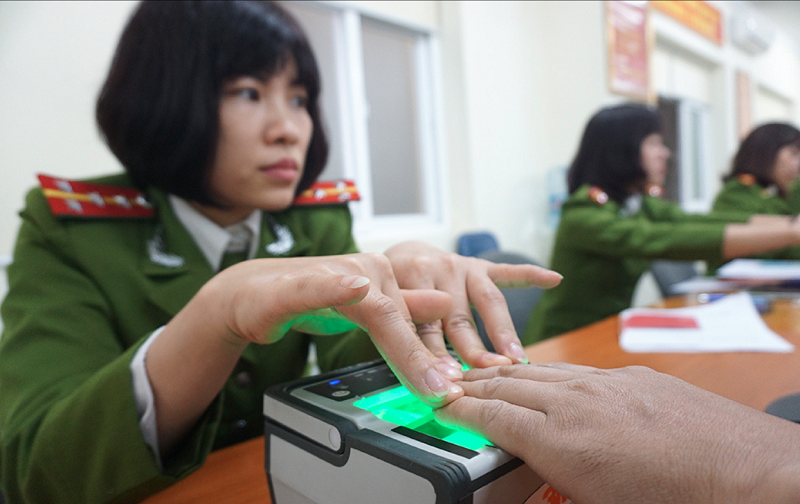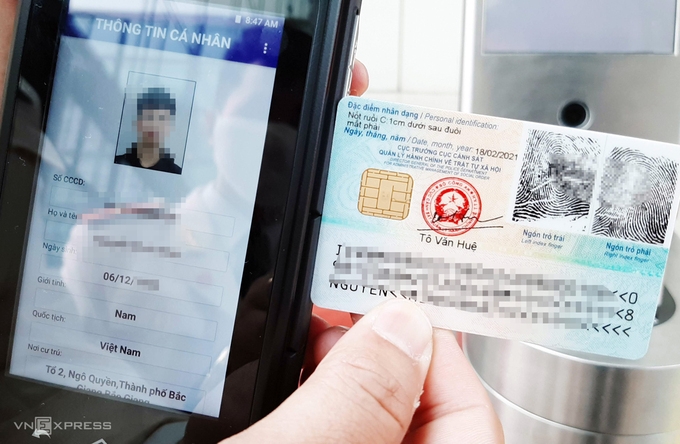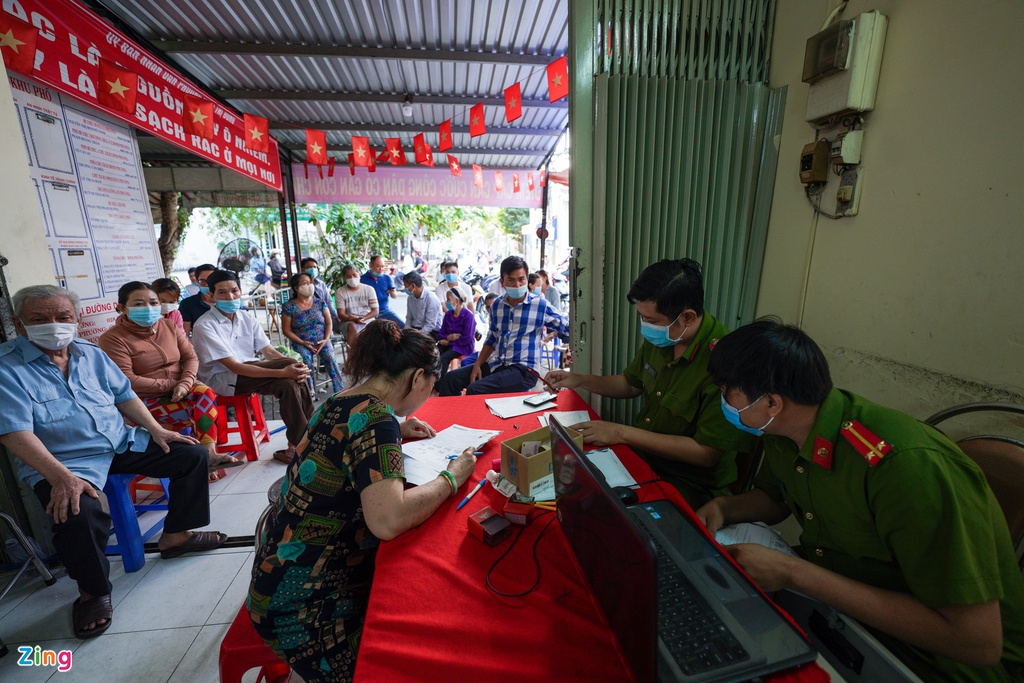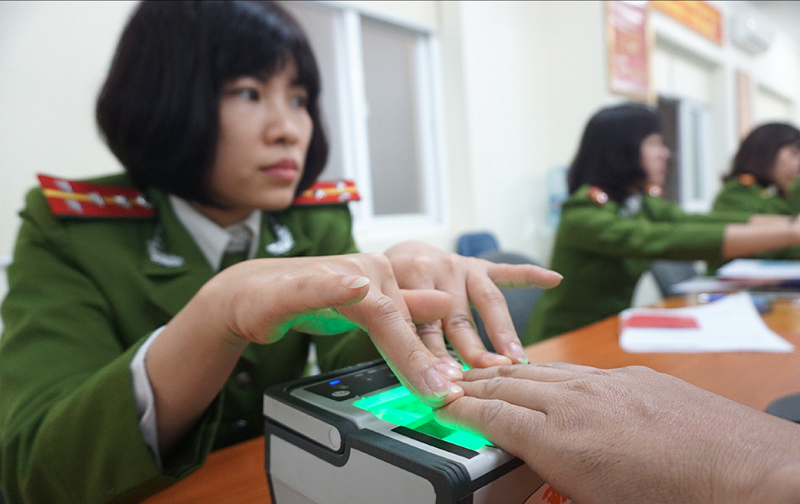Hanoi speeds up chip-based ID card issuance for residents
| National population database, citizen ID card management system launched | |
| Multiple information electronic ID cards to be reviewed for issuing in Vietnam | |
| Parents now need ID card to buy kid’s medicine |
 |
| (Photo: Zing News) |
The police force of Hanoi's Hai Ba Trung district has established four ID card issuance units at the district police headquarters and each ward. By July 1, 2021, all citizens eligible for the cards but yet to get any personal identifier must have their new chip-based ID card ready.
 |
| (Photo: Zing News) |
At Vinh Tuy ward's cultural house, the district police receive around 100 registration forms on just the night of March 9. The police force is reportedly working relentlessly three shifts (from 7:30 am to 11 pm) all weekdays and weekends to "meet the issuance deadlines".
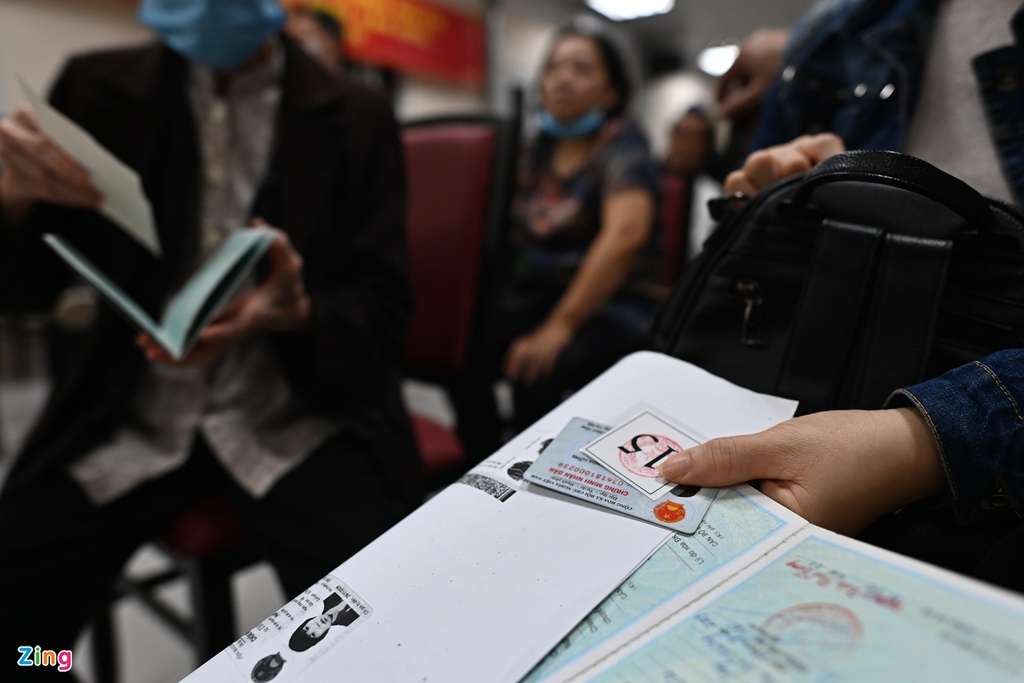 |
| (Photo: Zing News) |
All citizens must wear face masks and comply with anti-pandemic measures and social distancing rules.
 |
| (Photo: Zing News) |
Nguyen Thi Minh, from Vinh Tuy Ward, Hai Ba Trung district, said "During day time, I'm always occupied in housework and taking care of my grandchildren. Thus, it's very convenient that the authorities are working night shift".
 |
| (Photo: Zing News) |
Tran Phuong Uyen, 15, a high schooler, is preparing for her next schoolday while waiting for her turn to register. "I'm having an exam coming tomorrow. I've been here since 7 pm, it's 9:30 pm now and I havenn't heard they call my name yet", Uyen said.
 |
| (Photo: Zing News) |
All procedures, such as checking old ID cards, declaring information, taking fingerprint samples, taking pictures, are guided in detail by police officers.
 |
| (Photo: Zing News) |
"The procedure for chip-based ID cards lasts for only 5-10 mins, which is way simpler than the bard-coded ones", a representative from Hai Ba Trung district police told Zing News.
 |
| (Photo: Zing News) |
It's harder to take the fingerprints of senior residents as theirs are normally blurred.
 |
| (Photo: Zing News) |
Many people are still waiting at the cultural house at 11 pm.
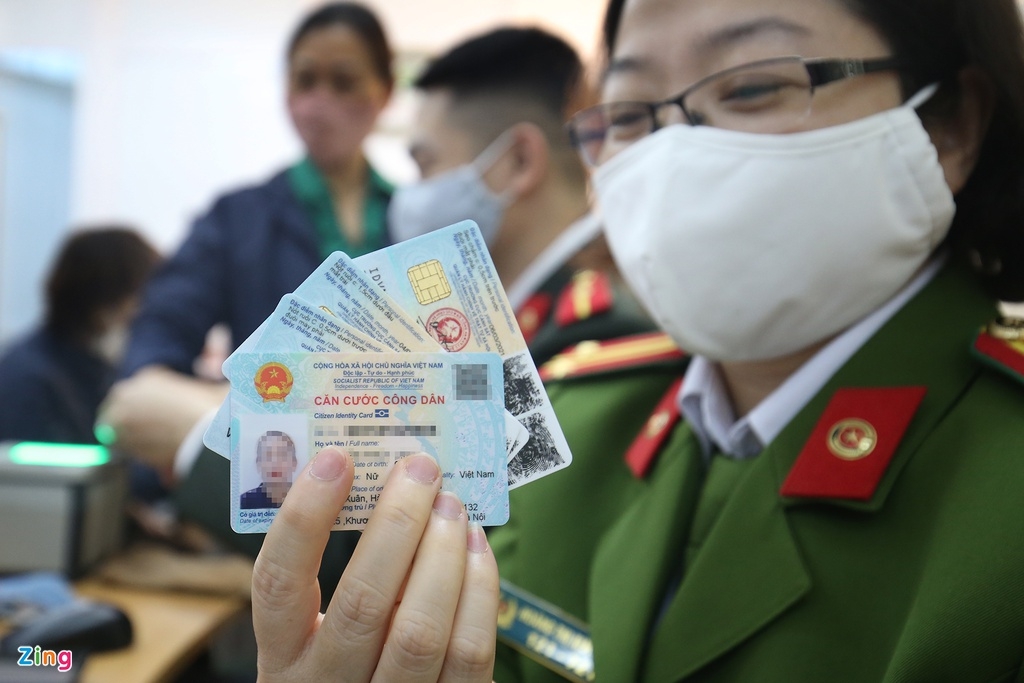 |
| (Photo: Zing News) |
Currently, Vietnamese citizens are using either nine-digit ID cards, 12-digit ID cards or the ID cards with 2D barcode. The latest kind of ID was introduced in 2016 but until now, only available in 16 cities and provinces nationwide including Hanoi, Vinh Phuc, Hung Yen, Hai Duong, Ha Nam, Nam Dinh, Ninh Binh, Thai Binh, Hai Phong, Quang Ninh, Thanh Hoa, HCM City, Can Tho, Tay Ninh, Ba Ria-Vung Tau and Quang Binh, according to Vietnam Law Magazine.
The issuance of 2D bar code ID has faced difficulties including cost.
The Ministry of Public Security wants to speed up the project on ID issuance so to bring it in line with the national database population project. Under the project, as of July 1, 2021, 50 million ID cards would be granted to eligible citizens. (The Law on Citizen Identification in 2014 stipulates that people from 14 years old are eligible to get an ID card and it will be renewed when they turn to 25, 40, and 60 years old.)
On the back of valid ID cards in Vietnam, personal information is posted while with the latest form of ID cards, the information is coded under 2D-barcode.
However, studies found that the 2D bar code fails to add more information into the ID cards or implement online transactions under the e-Government system that Vietnam is deploying.
So, the Public Security Ministry proposed Government to issue chip-based ID cards.
| When Vietnam introduced 12-digit ID cards in 2012, electronic chips were expensive and the country faced difficulties to master the technology. However, now, electronic chips are much cheaper and Vietnamese companies can produce the chips. E-chips have more advantages than the barcodes, especially as the chips could store the data that not only serves public security sector but also other sectors. As the chips are widely used all over the world and more suitable to e-Government, the ministry of Public Security proposed to apply this form of identification. |
 | Hanoi sidewalk eateries, iced tea stalls ignore Covid-19 prevention regulations Hanoi People’s Committee allowed indoor restaurants and coffees to reopen starting March 2 while discos, bars, karaoke parlors, outdoor eateries and sidewalk iced tea stalls ... |
 | The hundred-year-old villa of old Hanoi well-off family Located in the heart of Hanoi city, the villa owns typical French architecture and is said to have been built by the family members of ... |
 | Medical workers at Hanoi’s Thanh Nhan hospital receive Covid-19 vaccine On the morning of March 9, Thanh Nhan was the first hospital in Hanoi to launch the Covid-19 vaccination program. 30 medical staff who regularly ... |
Recommended
 National
National
Vietnam News Today (Jun. 7): Prime Minister works with Estonian firms to accelerate projects in Vietnam
 National
National
Vietnam News Today (Jun. 6): Foreign Investment in Vietnam Surges in Five Months
 National
National
Vietnam News Today (Jun. 5): PM sets off for attendance at UNOC 3 in France, official visits to Estonia, Sweden
 National
National
Vietnam News Today (Jun. 4): Vietnam - Promising Candidate for Southeast Asia’s Next Powerhouse
Popular article
 National
National
Shangri-La Dialogue 22: Vietnam Highlights Some Issues of Ensuring Stability in a Competitive World
 National
National
Vietnam News Today (Jun. 3): PM Pham Minh Chinh to Attend UN Ocean Conference, Visit Estonia, Sweden
 National
National
Vietnam News Today (Jun. 2): Vietnamese Trade Mission Sounds Out Business Opportunities in United States
 National
National


